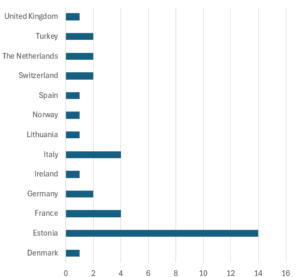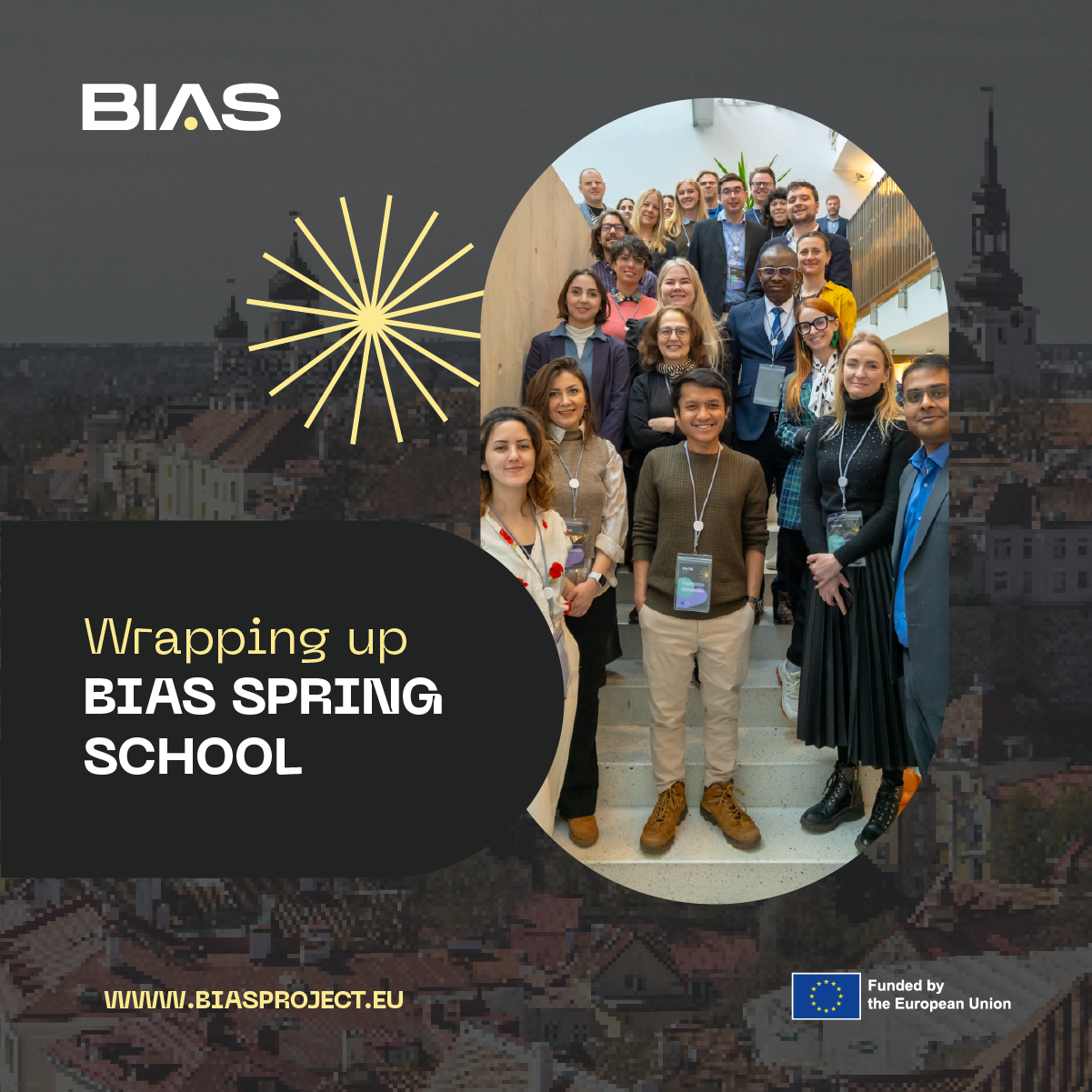21st April 2025
From April 7–10, 2025, Tallinn was transformed into a hub of collaboration and critical thinking as it hosted the BIAS Spring School on Trustworthy and Fair AI. With participants from across 13 countries (Figure 1), the event became a melting pot of ideas, advanced prompting, and European collaboration.

Figure 1 – Countries of spring school participants
The Spring School began with an energising keynote from Sandra Särav (Ministry of Economic Affairs and Communications), laying out Estonia’s digital DNA, especially the AI Leap, a national programme to bring AI tool to the Estonian schools. Hanah Lahe, Member of Estonian Parliament, challenged us to see AI as a climate ally, not a threat. Margot Roose, Deputy Mayor of Tallinn, gave a powerful case for cities as real-world AI sandboxes, with “Test in Tallinn” serving as the blueprint. Security took the spotlight with Anett Numa, Head of Government Relations and Communications at Accelerate Estonia, who demonstrated how Estonia’s cybersecurity policies have proactively blocked threats and provided lessons for SMEs.
The academic backbone of the event was carried by Mascha Kurpicz-Briki (Bern University of Applied Sciences), who unpacked the technical and ethical challenges of bias in language models, and Pinar Öztürk (NTNU), who explored fairness within decision support systems, proving that AI’s real power lies not just in predictions, but in just outcomes.
On the technical front, Jüri Kirpu, Account Executive at Google Cloud, gave us a sneak peek into Google’s AgentSpace, while Zeynep Yumrutaş (Farplas) highlighted the practical realities of embedding fair AI into recruitment pipelines. Gerlyn Tiigemäe, AI trainer and consultant, added a policy lens, comparing AI governance approaches across the EU, US, and China.
Mark William Kharas (NTNU) brought us into a deep dive into data management practices that underpin trustworthy AI deployment pipelines for building real systems. Meanwhile, Debolina Paul (Digiotouch) explained the human dimension, showing how fairness in AI isn’t just code, it’s collaboration, stakeholder input, and ethical intent.
The 2-day capacity-building workshop, Shaping Responsible and Inclusive AI in Recruitment, led by Maria Sangiuliano, Simona Lo Giudice, and Alexandre Puttick, trained participants in bias detection, fairness metrics, and ethical tool design, capped with the development of a prototype hiring tool using ALTAI principles.
One of the most impactful moments was the AI Fairness Connect networking reception, hosted by Crowdhelix and LOBA. With opening remarks from Eero Livandi (EIS) and insights from H.E Daniel Erik Schaer, Estonian Ambassador to South Africa and Kenya, the event inspired the participants to bring their innovations to the global markets, amplifying the BIAS Project’s international reach. Digiotouch AI offered a glimpse into its future with agent-based conversational AI, set to debut at Latitude59 2025.
What’s the impact?
The Spring School significantly strengthened the BIAS project’s scientific dissemination and capacity-building objectives, training AI stakeholders in applied fairness, forging new research and innovation links, and activating Estonia’s National Lab as a core node for BIAS collaboration. The participant base spanned 13 countries, with strong representation from Estonia, France, and Italy, reflecting the project’s broad footprint in different parts of Europe.
With AI becoming ever more embedded in decisions that matter, the BIAS Spring School made one thing clear: fairness isn’t optional, it’s the foundation.
